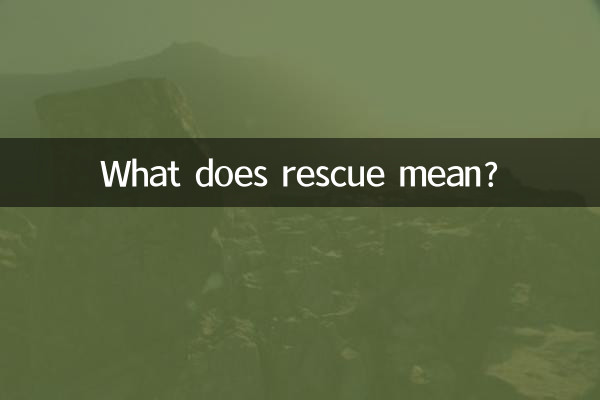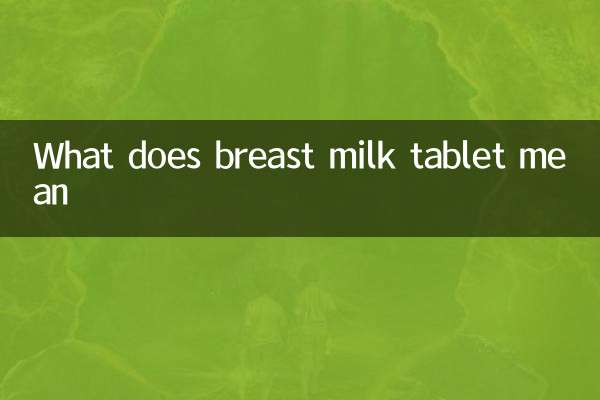What does rescue mean?
"Ineffective rescue" is a common medical term that is commonly used to describe a patient's failure to recover vital signs after emergency medical rescue. This statement appears frequently in news reports, medical notices and social events, but many people do not fully understand its specific meaning and the medical and legal significance behind it. This article will combine popular topics and hot topics across the network for the past 10 days to structure the meaning of "ineffective rescue", related data and social impact.
1. What is "ineffective rescue"?

"Ineffective rescue" means that after medical staff implemented emergency treatment measures such as cardiopulmonary resuscitation (CPR), drug injection, electric shock defibrillation, etc. on the patient, the patient still failed to recover his spontaneous breathing and heartbeat, and was eventually declared dead. This term usually occurs in the following scenarios:
2. Hot events related to "ineffective rescue" in the past 10 days
The following are the popular events and data statistics related to "ineffective rescue" in the past 10 days on the entire network:
| Event Type | Event description | Number of people involved | time |
|---|---|---|---|
| Traffic accident | A series of rear-end collisions were carried out by multiple vehicles on a highway, and three people died after failed rescue efforts | 3 people | November 5, 2023 |
| Sudden disease | A well-known actor was sent to the hospital for a heart attack and died ineffective rescue | 1 person | November 8, 2023 |
| Public Safety | A fire in a certain place caused two people to be seriously injured, but the rescue was ineffective after being sent to the hospital | 2 people | November 10, 2023 |
3. The legal and social significance of invalid rescue
1.Legal Procedures: After the rescue is invalid, the hospital must issue a death certificate, which may involve judicial appraisal (such as traffic accidents, criminal cases, etc.).
2.Insurance claims: Family members must apply for insurance compensation or work-related injury certification with a death certificate.
3.Social impact: Ineffective rescue deaths in public figures or major events often arouse public attention, such as allocation of medical resources and first aid efficiency.
4. How to improve the success rate of rescue?
According to medical research, the following factors can improve the success rate of rescue:
| factor | Influence | suggestion |
|---|---|---|
| Golden 4 minutes | The critical period of rescue within 4 minutes after cardiac arrest | Popularize cardiopulmonary resuscitation (CPR) knowledge |
| AED equipment | Automatic external defibrillator can significantly improve survival | Added AED in public places |
| First aid response speed | Every 1 minute delay in ambulance arrival time, the mortality rate increases by 7%-10%. | Optimize the layout of first aid network |
5. Common misunderstandings of "ineffective rescue" by the public
1."Ineffective rescue = medical accident": Not all rescue efforts are due to medical errors, and it may be because the patient is in a serious condition.
2."Declared death time = actual death time": Legally, the time announced by the doctor is based on, not the moment when the heartbeat stops.
3."The rescue is invalid without the consent of the family": According to medical standards, after the rescue fails, the family must be informed and signed and confirmed.
Conclusion
"Ineffective rescue" is a cruel reality of medicine and life, but it also reflects the limitations of first aid technology. By analyzing hot events and data, we can better understand the medical logic and social significance behind it. Improving public awareness of first aid and improving the allocation of medical resources may be the key to reducing the tragedy of "ineffective rescue".

check the details

check the details